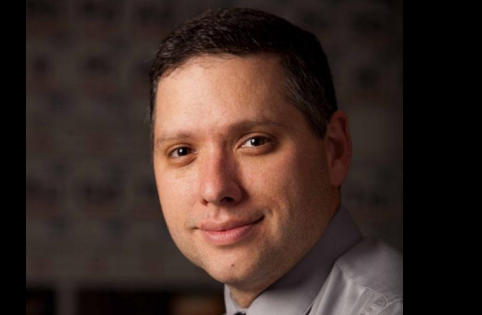The 2013 National Teacher of the Year, a science teacher, earns less than 25,000 of his fellow teachers in Washington state simply because he’s been in the classroom fewer years.
Jeff Charbonneau teaches chemistry, physics, and engineering at Zillah High School. He is a National Board Certified teacher who has received numerous awards, including more than $25,000 for the ZHS Robot Challenge, which he founded and directs.
Charbonneau has taught for 12 years, but thousands of fellow teachers earn far more than he, simply because they have more seniority. Washington law makes teacher salaries dependent entirely on education credentials and years on the job.
“It doesn’t matter if you are bilingual with a special endorsement,” said Jami Lund, an education reform fellow at the Washington-based Freedom Foundation. “Our state system is purely egalitarian.”
National Recognition Means Nothing
Each year for 16 years, teachers automatically earn a salary increase regardless of their performance in the classroom. With a master’s degree, which research consistently shows does not improve teacher quality, teachers earn even more and gain more protection from the possibility of a transfer or dismissal due to declining enrollment.
The National Teacher of the Year competition was established in 1952. The winner is chosen by a committee of teacher and school-related associations that are typically the same groups fighting against paying teachers for performance. In several states, for example, the coordinator for state teacher of the year is a teachers union official. State winners become contestants for national teacher of the year.
Steps to Reward Excellence
During Washington’s most recent legislative session, lawmakers proposed reforming the current pay system by rewarding teachers for producing high academic success. Senate Bill 5901, sponsored by state senators Steve Litzow (R-Mercer Island) and Rodney Tom (D-Medina), would have allowed school districts to pay successful teachers more. It also would have offered grants to districts that implement compensation systems based on performance.
Strong opposition from state teachers unions defeated these initiatives.
“We have made such limited progress after all this time because [unions] have been standing in the way,” said Stanford University’s Terry Moe. “Unions are right at the heart of the politics of education.”
It’s ironic the same teachers associations that gave Charbonneau a national award of excellence are also fighting against a twenty-first century salary schedule in Washington, Moe said.
Image courtesy of CCSSO.




